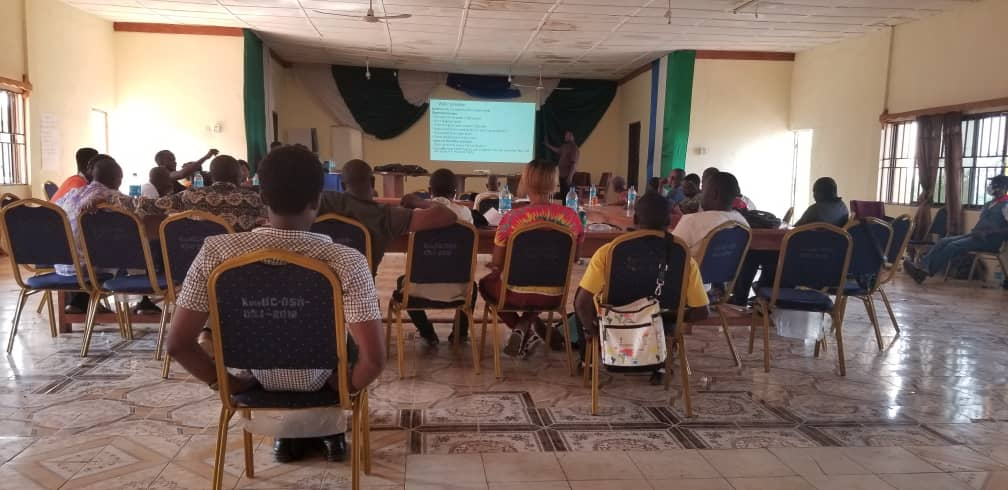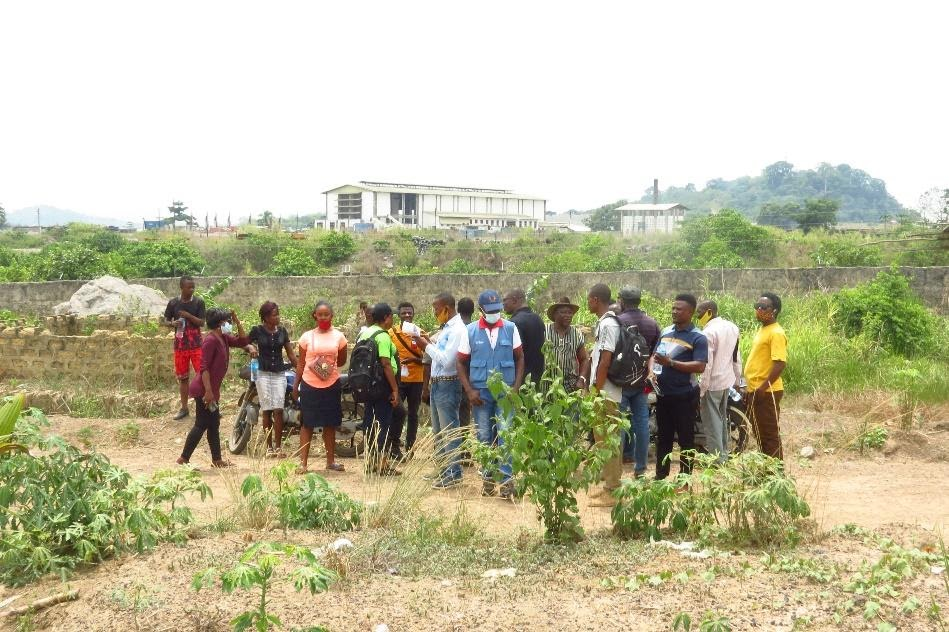In March 2021, members of the Marginalized Affected Property Owners (MAPO), a community-based association in Kono District, Sierra Leone, finally learned what a decibel is.
Of course, as residents of communities that abuts the giant Koidu Kimberlite Mine, whose operator regularly shakes the foundations of their homes with massive blasts of dynamite, MAPO members have long been intimately familiar with the impacts of decibels on their lives. They also know very well how declining soil fertility affects their crop yields, and how the contamination of water supplies leads to skin conditions and stomach ailments. But it’s one thing to know something in your gut, and another to understand it, measure it, and use it to advocate for yourself.
To support the affected communities in their struggle for justice against Koidu Ltd., the operator of the diamond mine, ACA and the Network Movement for Justice and Development (NMJD) organized a five-day citizen science workshop to introduce them to basic concepts and help them gather evidence. The workshop also benefited from technical advice by the American Academy for the Advancement of Science (AAAS) On-Call Scientist program and the participation of Dr Eric
Adjei, a soil science expert with Ghana’s Center for Scientific and Industrial Research (CSIR).
For three days, workshop participants received an intensive education on the impacts of noise, water and soil pollution. Then they were put to work, sent out into their own communities with measuring instruments and a detailed questionnaire.

They were able to make their own detailed observations of their surroundings and report back to the group – how does the water taste, smell, and look? What is happening in the immediate environment that may affect soil quality? How noisy is it, and how does the noise affect our physical health or state of mind? And what levels of noise, water contamination, or soil degradation are considered normal or consistent with human health?

Thanks to this experience, MAPO members now know – among other things – what a decibel is, and that the number of decibels they are subjected to on a prolonged basis is causing long-term hearing damage. Armed with this knowledge, MAPO members are creating action plans to further investigate
and document the state of their natural environment and the environmental impacts of the Koidu mine. With the assistance of ACA, NMJD, and both national and international scientific experts, they will bridge the gap between community, laboratory, and courtroom to defend and restore the water, soil, and quiet atmosphere of Kono.